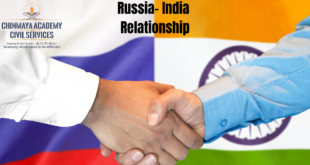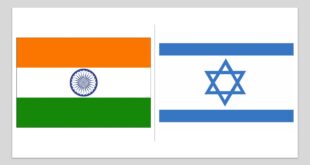In 1998, India put France in what should have been a tough spot. Just a few months after French President Jacques Chirac had been the chief guest at the Republic Day Parade in Delhi, and Prime Minister I.K. Gujral signed India’s first ever Strategic Partnership agreement with him, newly elected Prime Minister Atal Bihari Vajpayee announced that nuclear tests had been conducted in Pokhran (Pokhran-II), in May. In the United Nations (UN) Security Council, French diplomats joined the P-5 countries in condemning the tests, but did not join (along with the United Kingdom and Russia) the United States-led move to impose sanctions on India. Nor did France scrap the Strategic Partnership Agreement.
The Ukraine war
On a major geopolitical stage, this combination of non- interference and non-alliances plays into France’s approach towards the Narendra Modi government’s position on the war in Ukraine. In March 2022, a month into this war, France co- authored a UN Security Council resolution with Mexico that sought to ensure unhindered humanitarian aid be allowed inside the conflict zone.
Two rounds of negotiations followed, with hopes in particular of winning over countries such as India, given the humanitarian issue. The resolution was eventually brought to the UN General Assembly when that effort failed, but no word of disappointment was expressed by Paris when India abstained there. Through the war, President Emmanuel Macron’s own stance has been more complex than that of other western countries — even risking ridicule over the seven to eight extended calls he made to Russian President Vladimir Putin and a visit to Moscow in an attempt to talk Mr. Putin out of the war.
More recently, Mr. Macron suggested he would travel to South Africa for the BRICS summit in August, if invited, to make his case there. Understanding and sharing some of the complexity with which they view the world, New Delhi did not have differences with France over Mr. Macron’s visit to China in April this year, including his statement that Europe cannot be a “vassal state” to the U.S. on its China policy.
India France Relations
India and France have a long and close relationship that dates back to the early 17th century. The two countries have shared interests in a number of areas, including trade, defence, science and technology, and culture. In recent years, their relationship has become even stronger, as they have worked together to address common challenges such as terrorism, climate change, and maritime security.
Here are some of the key aspects of India-France relations:
Trade:
India and France are important trading partners, with bilateral trade valued at around $12 billion in 2022. France is the 11th largest foreign investor in India, with a cumulative FDI stock of over $10 billion.
Defence:
India and France have a strong defence relationship, with regular military exercises and arms sales. France is one of India’s top defence suppliers, and the two countries are working together on a number of joint defence projects.
Science and technology:
India and France have a long history of cooperation in science and technology. The two countries have signed a number of agreements to collaborate on research and development in areas such as nuclear energy, space exploration, and climate change.
Culture:
India and France have a rich cultural exchange, with strong ties in the areas of cinema, music, and literature. The two countries also have a number of cultural institutions that promote understanding between their peoples.
India and France are both major powers in the Indo-Pacific region, and their relationship is seen as an important factor in promoting stability and security in the region. The two countries have a shared vision of a multipolar world order, and they are working together to address common challenges such as terrorism, climate change, and maritime security.
The India-France relationship is an important one for both countries, and it is likely to continue to grow in importance in the years to come. The two countries share a number of common interests, and they are working together to address common challenges. This relationship is a valuable asset for both India and France, and it is likely to play an important role in the future of the Indo-Pacific region.
Here are some of the key agreements that have been signed between India and France:
The 2008 India-France Strategic Partnership Agreement: This agreement formalized the strategic partnership between the two countries and set out a framework for cooperation in a number of areas, including defence, security, trade, and culture.
The 2016 India-France Civil Nuclear Cooperation Agreement: This agreement paved the way for India to import nuclear fuel and technology from France.
The 2018 India-France Joint Declaration on the Indo- Pacific: This declaration reaffirmed the two countries’ commitment to working together to promote peace, security, and prosperity in the Indo-Pacific region.
The India-France relationship is a strong and growing one, and it is likely to play an important role in the future of the Indo- Pacific region.
P5 Countries
The term “P5 countries” refers to the five permanent members of the United Nations Security Council (UNSC). These countries have permanent seats on the UNSC and hold veto power, which allows them to block any substantive resolution proposed in the council. The P5 countries are:
United States
Russia
China
United Kingdom
France
The P5 countries are considered the most influential nations in global politics due to their permanent status and veto power in the UNSC. They have a significant impact on the decision- making process related to international peace and security matters. It is important to note that the P5 countries often have their own geopolitical interests and priorities, which can sometimes lead to disagreements and debates within the Security Council.
 Chinmaya IAS Academy – Current Affairs Chinmaya IAS Academy – Current Affairs
Chinmaya IAS Academy – Current Affairs Chinmaya IAS Academy – Current Affairs

